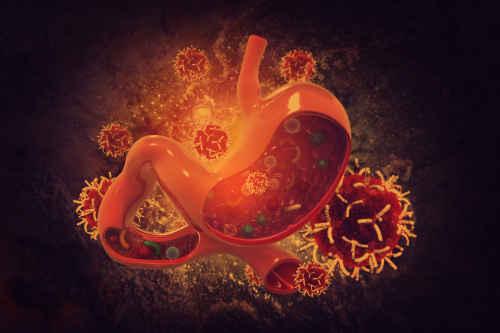New Brunswick, N.J., November 1, 2023 – The Hispanic population is the second largest ethnic group within the U.S., Hawaii, and Puerto Rico. According to the American Cancer Society, Hispanic individuals are more likely, and have higher rates of infection related cancers, including stomach cancer. Lyudmyla Berim, MD, medical oncologist in the Gastrointestinal Oncology Program at Rutgers Cancer Institute of New Jersey and RWJBarnabas Health, shares more about this topic and what the Hispanic community should know.
The Facts
According to the Cancer Facts & Figures for Hispanic/Latino People 2021-2023:
- On average, about 26,500 new cases of stomach cancer have occur in the U.S. each year with more than 11,000 deaths. It is estimated that approximately 2,200 Hispanic individuals die of stomach cancer annually.
- Compared to non-Hispanic Whites, stomach cancer incidence rates in Hispanic individuals are 60 percent higher in men and more than double in women.
- Hispanic men and women also appear to have higher risk of stomach cancer before 50 years of age.
- Incidence rates may be increasing in Hispanic and non-Hispanic White young adults, the causes for which are unclear but may be related to dietary changes and subsequent alterations in the gut microbiome.

The Risk
The term ‘infection-related’ discusses the probability of certain bacteria, viruses, and parasites, closely based on living and working environments. These things can increase the risk of cancer. A major bacteria that causes an increased risk to the development of stomach cancer is Helicobacter pylori. Other important risk factors include smoking and excess consumption of alcohol, foods preserved with salt, and/or processed meat.
Barriers to Care
Factors that take part in the increase of stomach cancer cases within the Hispanic community include access to care. Financial, language and educational barriers also contribute to challenges with care access.
Stomach Cancer is Preventable
Changes in diet, alcohol, and tobacco use can decrease your risk of stomach cancer. Decreasing preservatives and salt intake, processed meat, and adding fruits and vegetables in your diet can protect against stomach cancer. Maintaining a healthy weight and getting regular physical activity can also decrease your risk. Early stage stomach cancer rarely causes symptoms, so it is encouraged to watch out for symptoms and speak with a doctor if you have concerns.
Learn more about the Gastrointestinal Oncology Program at Rutgers Cancer Institute.
###
For journalists – contact:
Krista Didzbalis
Media Relations Assistant
732-507-8307
krista.didzbalis@rutgers.edu
For patient appointments/inquiries – contact:
844-CANCERNJ (844-226-2376)

